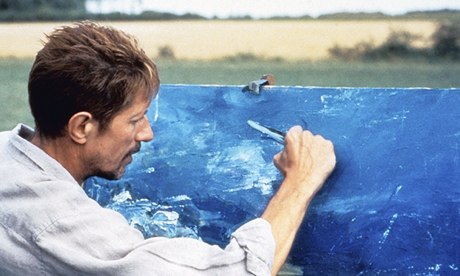
One of the most prickly mavericks of French cinema, Maurice Pialat (1925-2003) was a painter, documentary film-maker and occasional actor before making his feature debut in his mid-40s with L'enfance nue, an intense realistic film about a disturbed child being passed from family to family.
In 1987 Pialat famously waved his fist at a hostile Cannes audience when receiving the Palme d'Or for Under Satan's Sun (a complex Catholic movie from a novel by Georges Bernanos starring Gérard Depardieu in one of his several Pialat films). Norman Mailer was a member of the jury. Four years later Pialat flourished his fist again at the bourgeoisie in this lengthy, characteristically unromantic and unsentimental contribution to the centenary anniversary of Vincent van Gogh's death. It's a far cry in tone from the Vincente Minnelli-directed biopic Lust for Life, starring Kirk Douglas, released in France as La Vie passionnée de Vincent van Gogh and much more highly regarded there than in the English-speaking world.
At the centre of Van Gogh is a tough, uningratiating portrait by the handsome Jacques Dutronc (who won a César for his performance), and Pialat's visually striking picture concentrates entirely on the painter's final three months at Auvers-sur-Oise, being cared for by the kindly art collector Dr Gachet (Gérard Séty). Much of what happens is invented by Pialat, including an affair between Van Gogh and his host's daughter (Alexandra London), that casts a new light on the painter's character. Where this well-acted film excels is in the realistic set pieces: a party in a Parisian brothel; an idyllic dance beside the Oise; and a jolly alfresco lunch during which Vincente and his brother Theo impersonate Toulouse-Lautrec. The film looks like a succession of paintings by Renoir and Monet, presumably to show how different Van Gogh's vision was from that of the impressionists. They observed the world, whereas Van Gogh transformed it.
The Blu-ray disc is accompanied by several interviews, a short documentary on Van Gogh by Pialat and an informative booklet. The latter contains a letter to Pialat from Jean-Luc Godard, in which he says: "My dear Maurice, your film is astonishing, totally astonishing; far beyond the cinematic horizon covered up until now by our wretched gaze."

